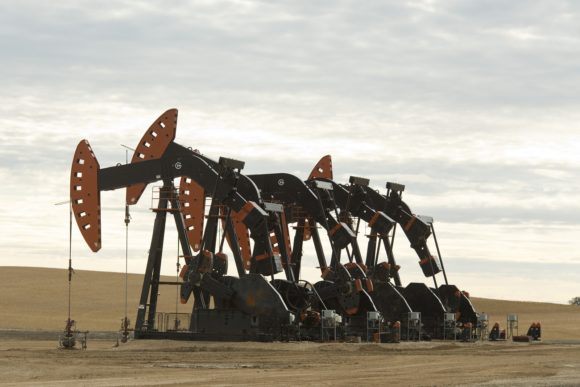State regulators will ask the Legislature to require bigger financial guarantees for oil and gas wells in response to a failed 40-well natural gas project in northwest South Dakota.
Under current state law, drillers of wells shallower than 5,500 feet can choose to post a $10,000 bond for each well, or a $30,000 blanket bond covering an unlimited number of wells. Wells deeper than 5,500 feet require bonds of $50,000 per well, or a blanket bond of $100,000.
Mike Lees, administrator of the Minerals and Mining Program for the state Department of Environment and Natural Resources, said last week that the department will ask for changes to the bonding requirements when legislators convene for their annual lawmaking session this winter. His comments came during a meeting of the state Board of Minerals and Environment at the Mineral Palace Hotel in Deadwood, the Rapid City Journal reported.
Lees said the department will propose that all oil and gas drillers be required to post bonds of either $50,000 per well, or a $100,000 blanket bond for an unlimited number of wells, regardless of depth.
Some board members suggested capping the blanket bond at a certain number of wells, rather than allowing it to cover an unlimited number of wells.
“There are states that have a cap, so we could look at that,” Lees said.
Bonds are intended to protect landowners and state government from situations like the one playing out near Buffalo, where 40 natural gas wells have been idle and orphaned for several years since the company that drilled them, Spyglass Cedar Creek LP, of Texas, encountered financial problems.
When drilling of the wells began in 2006, the company was required to post $30,000 in bonds. Someone associated with the company later cashed out $20,000 from the bonds without state government’s knowledge, leaving the state with only $10,000 to apply toward the estimated cost of nearly $900,000 to plug the 40 orphaned wells.
The state has since imposed a $15.5 million fine against Spyglass and filed a lawsuit against the company to pursue the money. Meanwhile, a lawyer for the state Attorney General’s Office said that Spyglass recently paid $20,000 to state government to replace the cashed-out bond.
Lees said his department will also pursue legislation allowing it to shift captured bond funds from one project to another.
That proposed change is another reaction to the Spyglass situation. While state officials were brainstorming ways to fund the plugging of the Spyglass wells, they considered using leftover bond money from a failed oil-well project near Wasta. But they received legal advice that the bond money could not be lawfully moved from one project to the other.
Additionally, Lees said, the department will seek legislation allowing it to require an extra $20,000 in bonding per well for any well that has been idle for at least six months.
It’s unclear how that would have helped the state recover money from Spyglass, which appeared to be in dire financial straits by the time its wells had been idle for six months. Lees said the ability to require extra bonding at the six-month mark would have at least “brought things to a head sooner.”
The Spyglass wells remain unplugged, but the Department of Environment and Natural Resources has said the wells do not pose an immediate environmental threat.
Was this article valuable?
Here are more articles you may enjoy.



 Maine Plane Crash Victims Worked for Luxury Travel Startup Led by Texas Lawyer
Maine Plane Crash Victims Worked for Luxury Travel Startup Led by Texas Lawyer  Florida’s Commercial Clearinghouse Bill Stirring Up Concerns for Brokers, Regulators
Florida’s Commercial Clearinghouse Bill Stirring Up Concerns for Brokers, Regulators  Nine-Month 2025 Results Show P/C Underwriting Gain Skyrocketed
Nine-Month 2025 Results Show P/C Underwriting Gain Skyrocketed  Pipeline Explodes at Delfin LNG Planned Project in Louisiana
Pipeline Explodes at Delfin LNG Planned Project in Louisiana 

